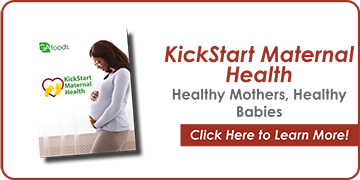Open enrollment for 2023 Medicare is here! From now until December 7, Americans 65 and older can review and change their Medicare coverage options for 2023. Many health plans offer new and expanded benefits for 2023. Recent data indicates that 45% of enrollees selected Medicare Advantage plans – or Part D for 2022. By 2025, Medicare Advantage enrollment will reach over 50%.
Topics: Home Delivered Meals, Medicare, Senior Nutrition, Social Determinants of Health, Older Adults, Medicare Advantage
Expecting a baby can be a very joyful time! However, it can also be stressful for women with pre-existing conditions or other conditions that may develop during pregnancy. Fortunately, a health plan can take steps to help to ensure a healthy pregnancy and delivery for its high-risk members.
Receiving proper prenatal care is the first step. Regular visits to an obstetrician are necessary to ensure good fetal development and the health of the mother.
One way to stay healthy is through a proper diet. Good nutrition during pregnancy can lower the risk for poor maternal and child outcomes, including low birth rates and premature delivery. Healthy meals are vital for those who experience high-risk pregnancies, including those managing gestational diabetes and pre-eclampsia.
Proper maternal health is essential for:
- Healthy blood pressure, weight, and wellness
- Reducing preterm labor
- Avoiding NICU admissions
- Overall lower maternal pre and postnatal costs
Medical Nutrition Therapy
Some health care plans may offer their members telehealth Medical Nutrition Therapy. These sessions partner women with a Registered Dietitian (RD) during pregnancy and when they return home from the hospital. The RD will educate the member in selecting, preparing, and eating appropriate food for their condition. They can also recommend a medically tailored meal plan to fit the unique prenatal and postnatal needs. Medically tailored meals help to manage existing conditions to treat those that can occur during pregnancy.
Common chronic conditions that may occur during pregnancy are:
- Diabetes
- Hypertension
- Cardiovascular Disease
- Obesity
Offering a home-delivered meals program to expectant mothers is a simple way to address the Social Determinants of Health, including food insecurity, help to encourage breastfeeding, and reducing preterm births. Providing nourishment to high-risk mothers can help reduce NICU and overall healthcare costs.
Click below to learn more about GA Foods' KickStart Maternal Health program.
Topics: Nutrition, Social Determinants of Health, Maternal Health, Chronic conditions, Healthy mothers
Hospitals and healthcare systems are addressing the Social Determinants of Health for their patients throughout the continuum of care. Studies show that social, economic, and environmental factors are contributing factors to patient health.
Topics: Home Delivered Meals, Medicare, Nutrition Care, Malnutrition, Post Discharge, Managing At-Risk Patients, aging in place, Social Determinants of Health
Food Insecurity & the Social Determinants of Health
Posted by Maureen Garner, MS, RD, LD on Feb 21, 2019 11:13:12 AM
Best known as conditions in the places where people live, learn, work, and play, that affect a wide range of outcomes, Social Determinants of Health (SDOH) are categorized around five key areas; economic stability, education, health and healthcare, neighborhood and built environment, and social and community context. And among these areas, are a number of issues that make up the underlying causes surrounding SDOH. From employment and education status to quality of housing, our health today is greatly influenced by these factors with one of the most prevalent being limited access to healthy food.










